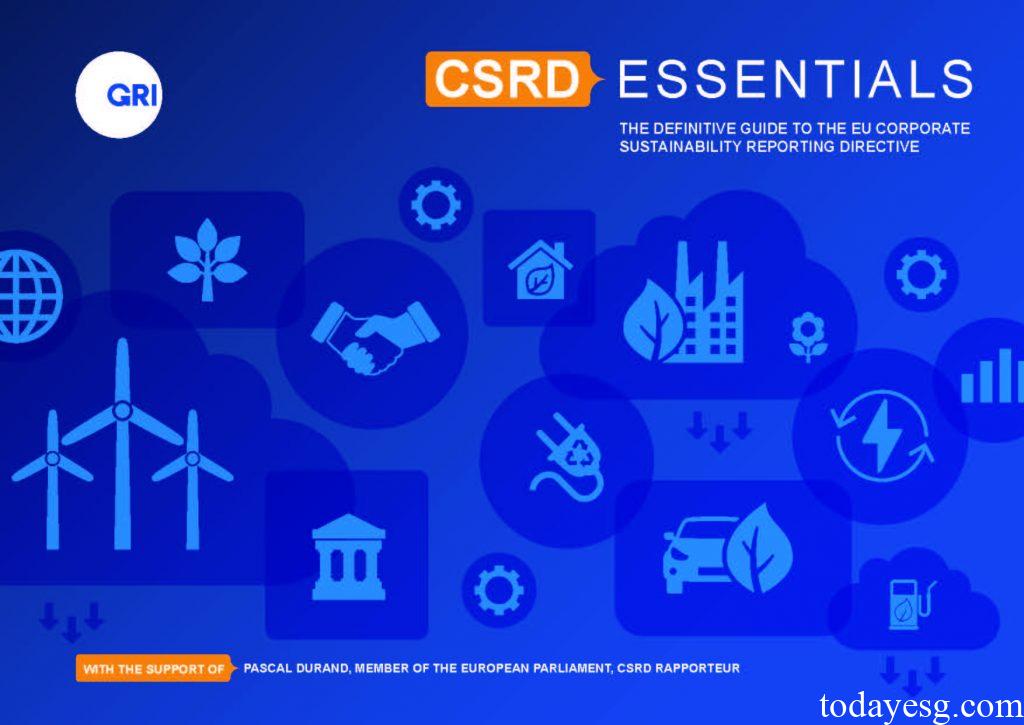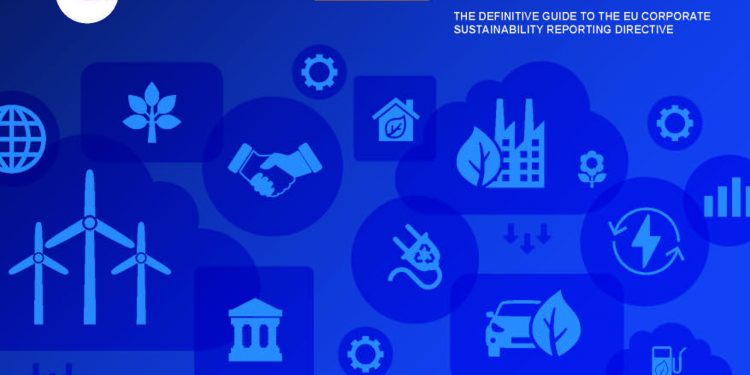Briefings on Corporate Sustainability Reporting Directive
The Global Reporting Initiative (GRI) releases briefings on Corporate Sustainability Reporting Directive (CSRD) to introduce the core contents of CSRD to market participants.
The Corporate Sustainability Reporting Directive is the cornerstone of the European Green Deal, which establishes clear and consistent sustainability reporting standards for EU companies. These briefings summarize the key aspects of the CSRD and enhance the market’s understandings.
Related Post: Introduction to the European Sustainable Finance Disclosure Regulation SFDR
Relationship between NFRD and CSRD
The Corporate Sustainability Reporting Directive comes from the EU Non-Financial Reporting Directive (NFRD). The Non-Financial Reporting Directive is a regulatory framework that aims to increase the transparency of non-financial information of large EU companies. It encourages companies to consider environmental, social and governance factors in their business and disclose relevant information. NFRD comes into effect in November 2014 and affects approximately 11,000 companies. Although the Non-Financial Reporting Directive is an important milestone in the EU’s sustainable information disclosure, it does not force qualified companies to disclose information, nor does it impose strict audit requirements on the disclosed information of companies.
As a replacement for the Non-Financial Reporting Directive, the Corporate Sustainability Reporting Directive (CSRD) has made stricter provisions in terms of scope of application and disclosure requirements. The CSRD directly applies to more than 42,500 companies, and thousands of companies headquartered outside the EU also be impacted. In terms of information disclosure, the CSRD requires qualified companies to disclose environmental, social and governance topics specified in the European Sustainability Reporting Standards (ESRS) and requires companies to provide limited assurances to their reports. In terms of information disclosure format, the CSRD has added the European Single Electronic Format based on XBRL technology to increase the machine readability of the report and help with information comparison.

Relationship between ESRS and CSRD
The European Sustainability Reporting Standards (ESRS) is a standardized method used by companies to disclose information based on the CSRD, providing companies with instructions for complying with the CSRD. ESRS is divided into three categories, namely cross-cutting standards, topical standards, and sector-specific standards. Cross-cutting standards are ESRS 1 and ESRS 2, which are general requirements for corporate sustainable information disclosure. Regardless of the industry to which the company belongs, it is required to comply with these standards for mandatory disclosure.
There are 10 topical standards in ESRS, which reflect the sustainable information disclosure of environment, society, and governance factors. For these topical standards, companies need to assess whether the environmental, social and governance factors in their business activities are material. The sector-specific standards of ESRS will disclose information based on the sustainable risks and opportunities in which the company is located and will be applicable from 2027.
In addition to the ESRS (also known as full ESRS) that has been formulated, the sustainable information disclosure standards for listed SMEs are still being formulated. CSRD requires that the sustainable information disclosure standards for these SMEs should be relatively simple, considering the business scale and information disclosure capabilities of these companies. The sustainable information disclosure standard for listed SMEs will be applicable from 2026, while non-listed SMEs can use it as a standard for voluntary disclosure. At present, CSRD does not include non-listed SMEs in its regulatory scope, nor does it force them to disclose any sustainable information.
CSRD includes some third-country companies in its regulatory scope, which are listed on the EU securities market or whose direct turnover in the EU meets regulatory requirements (turnover in the EU exceeds 150 million euros, and turnover of EU subsidiaries exceeds 40 million euros). CSRD requires these companies to apply ESRS for information disclosure or use the sustainable information disclosure rules in their jurisdictions. CSRD requires that the sustainable information disclosure rules of third countries need to be reviewed by the European Commission and will be deemed equivalent to ESRS if approved. The EU will publish a list of third-country companies that have already made sustainable information disclosures on its website.
Reference:
GRI – Making the Corporate Sustainability Reporting Directive Accessible for All








